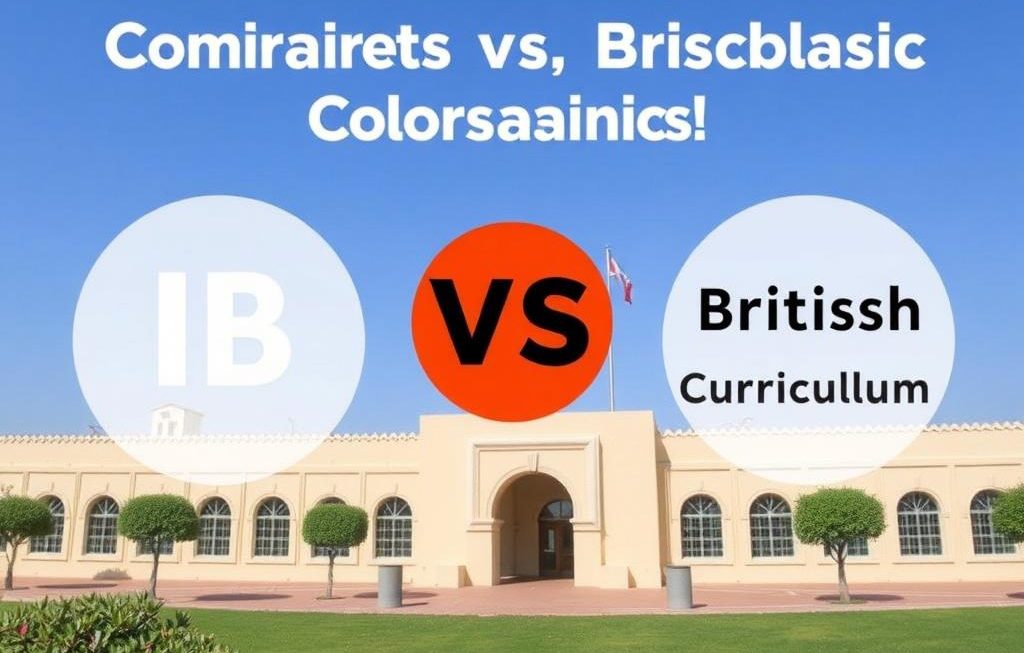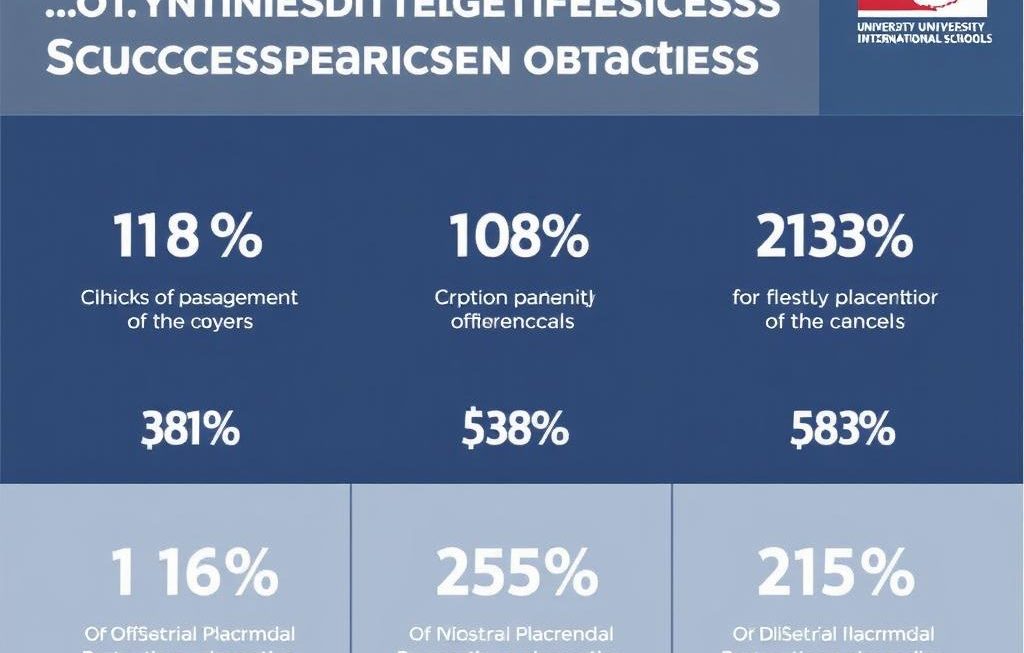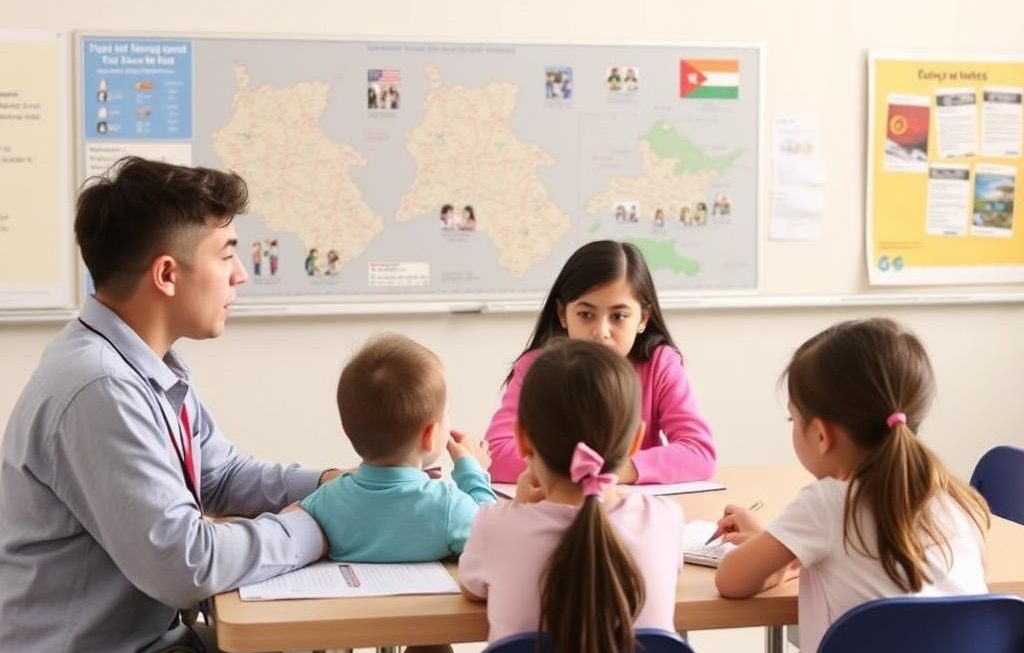The landscape of special needs education in Cyprus international schools is evolving rapidly, reflecting broader global trends toward inclusive education. Understanding how these schools provide support for disabled students Cyprus-wide is critical for parents, educators, and policymakers alike. This comprehensive examination reveals the range of special education services Cyprus international schools offer and the structured frameworks in place, such as Individualized Education Programs (IEPs), to ensure all children access quality education adapted to their unique needs.
Cyprus international schools have seen a marked shift toward developing special needs international school Cyprus programs that refuse to sideline students based on disabilities or learning challenges. Instead, they adopt inclusive education Cyprus principles, integrating special needs learners into mainstream classrooms, supported by specialized resources and tailored educational planning. Navigating this environment means assessing the types of support available, the regulatory framework guiding special education, and the practical approaches international schools take to meet diverse student needs.
The Framework of Inclusive Education in Cyprus International Schools
Inclusive education Cyprus is more than a policy; it is a commitment by schools to embrace diversity, ensuring disabled students receive equitable learning opportunities alongside their peers. Unlike segregated special education institutions, inclusive schools embed all students in a common learning environment, fostering social integration and academic growth. Cyprus has aligned its educational policies with the United Nations Convention on the Rights of Persons with Disabilities (UNCRPD), which mandates accessibility and participation in education for all children.
International schools in Cyprus, drawing from British, American, and other educational systems, implement inclusive education Cyprus through a blend of legislative adherence and school-specific initiatives. This approach involves training teachers in special education strategies, modifying curricula, and enhancing physical accessibility. Moreover, schools recognize that inclusive education requires ongoing assessment and collaboration among educators, parents, and external specialists.
Inclusive education in Cyprus international schools ensures disabled students are integrated and supported within mainstream classrooms, promoting equality and participation.
Special Needs International School Cyprus: Understanding the Options
Parents seeking special needs international school Cyprus options have access to various institutions catering to a wide range of disabilities and learning differences. Some international schools offer dedicated special education units or resource rooms, while others adopt a full inclusive model without separate classrooms. The decision between integration and inclusion depends on each child’s needs, available supports, and school philosophy.
Special needs programs in these schools typically address cognitive impairments, speech and language delays, autism spectrum disorders, physical disabilities, and behavioral challenges. Staffed by trained special education professionals, they provide personalized learning strategies and therapies.
| Type of Support | Description | Common Disabilities Addressed |
|---|---|---|
| Resource Rooms | Small specialized classrooms for targeted instruction | Learning disabilities, speech delays, mild autism |
| In-Class Support | Teaching assistants assist students in mainstream classrooms | Various, depending on student needs |
| Therapeutic Services | Speech therapy, occupational therapy, counseling | Speech and motor impairments, emotional disorders |
| Customized Curriculum | Adapted lessons aligned with student abilities | Intellectual disabilities, developmental delays |
Special needs international school Cyprus options range from resource rooms to full mainstream integration, supported by specialized staff and adapted curricula.
Individualized Education Programs (IEP) in International Schools
One of the pillars of effective special education services Cyprus international schools offer is the development and implementation of the IEP international school Cyprus framework. An Individualized Education Program is a legally recognized document that outlines personalized learning goals, accommodations, services, and assessment methods for students with disabilities. It ensures that support is not generic but tailored precisely to a student’s strengths and challenges.
The IEP process begins with a comprehensive evaluation by specialists such as psychologists, speech therapists, and educators. The IEP team—which includes parents, teachers, and often the student—then collaborates to set measurable goals. Progress is regularly monitored and reviewed, allowing for adjustments based on student developments. In Cyprus international schools, this model aligns closely with global best practices and is increasingly standardized across institutions.
Employing IEPs guarantees transparency and accountability, supporting disabled students Cyprus-wide by clarifying responsibilities and ensuring that resources are appropriately allocated. This formalized approach benefits students with complex needs and facilitates communication between families and schools.
IEP international school Cyprus frameworks deliver customized educational plans, promoting student success through collaborative, goal-oriented strategies.
Special Education Services Cyprus: Staffing, Training, and Resources
The quality of special education services Cyprus offers in international schools heavily depends on staffing and resource allocation. Schools employ a multidisciplinary team including special education teachers, speech and language therapists, occupational therapists, psychologists, and counselors. These professionals collaborate to provide holistic support addressing academic, social, emotional, and physical challenges.
Teacher training is a critical focus area. International schools invest in continuous professional development to equip staff with skills necessary for inclusive education Cyprus. Training covers evidence-based instructional methods, behavior management strategies, differentiation, and understanding disabilities from a neurodevelopmental perspective. Moreover, many schools utilize technology such as assistive devices, adaptive software, and communication tools to maximize student engagement and autonomy.
The presence of dedicated facilities also marks the degree of special education services Cyprus international schools can provide. Accessible classrooms, sensory rooms, quiet spaces, and therapy areas contribute to accommodating varying student needs effectively.
Legal and Policy Context Governing Special Needs Education in Cyprus
Understanding the regulatory framework is essential for grasping how special needs international school Cyprus services and supports are organized. Cypriot national law mandates the provision of education to children with disabilities, inspired by European Union directives and international treaties. However, because international schools operate within autonomous systems—adhering to British, American, or other foreign curricula—they also comply with specific international educational standards.
This dual compliance ensures that students receive support aligned with both Cyprus national policies and the expectations of their respective educational systems. For example, many British curriculum international schools in Cyprus strictly follow guidelines from the UK’s Special Educational Needs and Disabilities (SEND) Code of Practice, adapting them to local context.
Coordination between the Ministry of Education and Culture in Cyprus and international institutions facilitates resource sharing and promotes inclusive education Cyprus. Nevertheless, challenges remain, such as variability in the availability of specialized staff and financial support for families seeking private special education.
International schools in Cyprus balance local regulations and global standards to provide legally compliant, quality special education services.
How Support for Disabled Students Cyprus-wide Is Implemented in Daily School Life
The practical implementation of support for disabled students Cyprus international schools provide touches every aspect of school life—from curriculum delivery to social interaction and extracurricular activities. Schools strive to create welcoming environments where all students feel valued and supported.
Classroom modifications, such as differentiated instruction and flexible teaching methods, are standard. Educators often use visual aids, assistive technologies, and peer support programs to enhance learning. The social inclusion of disabled students is encouraged through buddy systems and inclusive sports or arts activities, helping to build peer relationships and reduce stigma.
Moreover, schools emphasize clear communication with parents and caregivers, ensuring they remain active partners in the educational process. Regular meetings, progress reports, and workshops are common ways to maintain this collaboration.
- Personalized teacher assistance during lessons
- Use of adaptive technology for communication and learning
- Behavioral support plans tailored to individual needs
- Accessible physical environments and emergency protocols
- Inclusive extracurricular and social activities
Daily support in Cyprus international schools ensures disabled students receive academic, social, and emotional assistance tailored to their individual needs.
Challenges and Opportunities in Special Needs International School Cyprus Landscape
Despite significant advances, the field of special needs international school Cyprus still faces challenges. One key issue is the scarcity of fully trained special education personnel, which limits the extent of individualized support. Financial constraints also impact the affordability of these specialized services for many families.
Another challenge is cultural awareness and acceptance. While inclusive education Cyprus is widely promoted, stigmatization of disabilities persists in some communities, affecting student integration and confidence both at school and beyond.
However, ongoing developments offer promising opportunities. Advances in educational technology, increased government and private sector funding, and strengthened professional development programs are gradually raising the quality and accessibility of services. International schools often serve as models of inclusive practice that can influence the broader Cypriot education system.
Additionally, active parental involvement and advocacy contribute significantly to improving policies and classroom practices, ensuring that support for disabled students Cyprus-wide continues to progress.
Advancing Potential: Where Special Needs Education in Cyprus International Schools Is Heading
The future of special needs education in Cyprus international schools lies in deeper integration of personalized learning technologies, expanded teacher training, and enhanced collaboration between schools, families, and healthcare providers. The growing emphasis on evidence-based interventions and data-driven decision-making will help schools address diverse student profiles more effectively.
Furthermore, international cooperation and exchange programs provide educators with access to cutting-edge research and methodologies, empowering them to refine inclusive education Cyprus models continuously. As awareness of disability rights expands, and as legal frameworks solidify, schools will likely see more comprehensive implementation of IEP international school Cyprus initiatives and tailored special education services Cyprus-wide.
Ultimately, the goal is a seamless educational experience where all students can thrive academically and socially, irrespective of their learning differences or disabilities. Achieving this requires sustained commitment, resources, and innovation from all stakeholders involved.
The evolving landscape of special needs education in Cyprus international schools promises more inclusive, adaptive, and effective learning environments for all students.
Empowering Every Learner: Embracing the Future of Special Needs Education in Cyprus International Schools
Special needs education in Cyprus international schools is a multifaceted endeavor requiring thoughtful design, skilled professionals, and engaged communities. By expanding inclusive education Cyprus practices, refining IEP international school Cyprus executions, and enhancing support for disabled students Cyprus-wide, these schools are forging a future of equal opportunity and academic excellence.
Parents and educators must continue advocating for resources, training, and policies that recognize the full potential of every child. Only through collaborative effort and unwavering dedication will Cyprus international schools become truly inclusive spaces where students with special needs receive the individualized attention and encouragement they deserve.
As the sector matures, learning from both local context and international best practices will be key in transforming special education services Cyprus-wide, turning challenges into opportunities for enduring educational success.
Frequently Asked Questions
-
What types of disabilities do Cyprus international schools typically support?
They support a range of disabilities including learning difficulties, speech and language impairments, autism spectrum disorders, physical disabilities, and behavioral challenges.
-
How does the IEP process work in international schools in Cyprus?
The IEP process involves evaluating the student’s needs, setting individualized goals, determining accommodations, and regularly reviewing progress with input from teachers, parents, and specialists.
-
Are international schools in Cyprus legally required to provide special education services?
Yes, they comply with local Cypriot regulations and international education standards that mandate support for students with disabilities.
-
Can students with special needs participate in regular classroom activities?
Most international schools strive for inclusive education, enabling students with special needs to participate alongside peers, supported by appropriate accommodations.
-
What kind of professional support staff assist special needs students in these schools?
Staff include special education teachers, speech and occupational therapists, psychologists, counselors, and teaching assistants.
-
How are parents involved in the education of their children with special needs?
Parents collaborate closely with schools through meetings, progress reviews, and participation in IEP planning to support their child’s learning.
-
What challenges exist for special needs education in Cyprus international schools?
Key challenges include shortage of trained specialists, financial accessibility, and cultural stigma surrounding disabilities.



